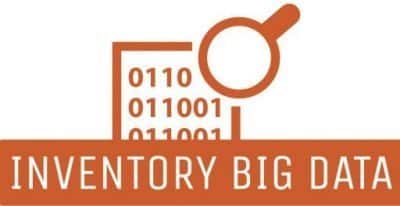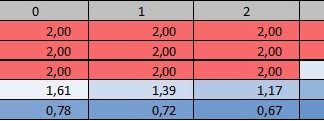Description
Interview questions for inventory manager
Here are some examples of interview questions that could be asked for an inventory manager position:
- Can you tell us about your previous experience as an inventory manager or in a similar role?
- What are some challenges you have faced in your previous inventory manager roles and how did you overcome them?
- What are your strengths as an inventory manager and how do you think you can utilize them in this role?
- How do you manage relationships with team members and stakeholders?
- How do you manage inventory levels and forecast future needs?
- How do you track inventory accuracy and maintain the integrity of inventory records?
- How do you handle discrepancies and discrepancies in inventory counts?
- How do you work with suppliers to manage deliveries and restocking?
- How do you handle and resolve customer complaints or issues related to inventory?
- How do you stay up-to-date with industry trends and best practices in inventory management?
Interview Questions for Inventory Manager:
- Can you tell us about your experience managing inventory systems and processes?
- How do you stay organized and prioritize tasks in a fast-paced environment?
- How do you ensure inventory accuracy and track discrepancies?
- How do you handle unexpected spikes in demand for certain products?
- Can you walk us through your approach to forecasting future inventory needs?
- How do you communicate and collaborate with other departments, such as sales and purchasing, to ensure inventory levels meet business requirements?
- How do you stay up-to-date on industry developments and implement best practices in inventory management?
- Can you give an example of a time when you had to make a difficult decision regarding inventory levels?
- How do you handle and resolve conflicts with suppliers regarding deliveries and inventory levels?
- Can you discuss a situation where you had to implement process improvements to increase efficiency in the inventory management system?
Answers:
- I have [x number of years] of experience managing inventory systems and processes. In my previous role, I was responsible for maintaining accurate records of all incoming and outgoing products, as well as implementing systems for inventory tracking and optimization. I have experience with a variety of inventory management software programs and am familiar with the principles of Just-In-Time inventory management.
- I stay organized by utilizing project management tools and creating daily to-do lists. Prioritizing tasks is all about understanding the importance and urgency of each task, and then determining the best course of action. I also make sure to regularly evaluate and adjust my priorities as needed.
- Ensuring inventory accuracy is a top priority for me. I regularly perform physical counts of inventory and compare the results to our system records. If discrepancies are found, I investigate the cause and take appropriate action to resolve the issue. I also have systems in place for regularly auditing our inventory records to identify any errors or areas for improvement.
- Unexpected spikes in demand for certain products can be challenging, but I have experience developing contingency plans to quickly increase inventory levels. This often involves working closely with suppliers and negotiating expedited delivery times. I also make sure to continuously monitor demand and adjust our inventory levels accordingly to avoid stockouts or excess inventory.
- Forecasting future inventory needs requires a combination of data analysis and industry knowledge. I review historical sales data, industry trends, and other relevant information to make informed predictions about future demand. I also regularly communicate with other departments, such as sales and marketing, to understand any upcoming promotions or product launches that may impact inventory needs.
- Communication and collaboration with other departments is crucial for effective inventory management. I make sure to regularly meet with relevant stakeholders, such as the sales team, to understand their needs and ensure that inventory levels meet business requirements. I also use shared databases and real-time reporting to ensure everyone has up-to-date information on inventory levels and performance.
- I stay up-to-date on industry developments by regularly reading relevant trade publications, attending conferences and workshops, and networking with other professionals in the field. I am always looking for ways to implement best practices and improve our inventory management processes.
- One difficult decision I had to make regarding inventory levels was when demand for a particular product suddenly decreased. I had to make the difficult decision to reduce our inventory of this product to avoid excess stock and minimize waste. I made sure to communicate the changes to relevant stakeholders and monitored the situation closely to ensure we still had adequate inventory levels to meet customer demand.
- Conflicts with suppliers regarding deliveries and inventory levels can be resolved through effective communication and negotiation. I make sure to clearly communicate our inventory needs and expectations with suppliers and work with them to find a mutually beneficial solution. If necessary, I am also prepared to find alternative suppliers to ensure we have the products we need to meet customer demand.
- One example of process improvement I implemented in my previous role was the implementation of a barcode scanning system for inventory tracking. This not only improved accuracy, but also increased efficiency by reducing manual data entry and reducing the time needed for physical counts. This process improvement helped us to better track inventory levels in real-time and make more informed decisions about inventory management.






